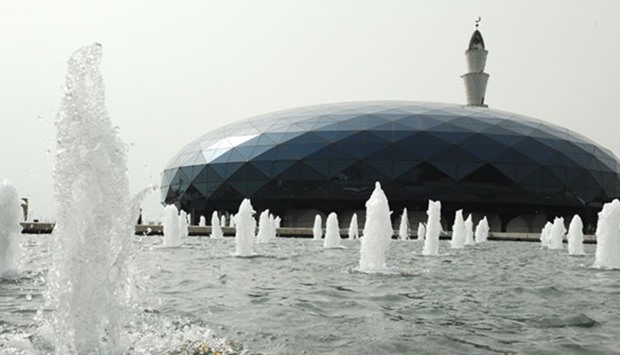Abu Hurairah, may Allah be pleased with him, reported that the Messenger of Allah, sallallaahu ‘alaihi wa sallam, said: “Hasten to do good deeds before you are overtaken by one of the seven afflictions.” Then (to warn of them) he, sallallaahu ‘alaihi wa sallam, said: “Are you waiting for such poverty that would make you unmindful of devotion, or wealth that would make you corrupt, or sickness that would disable you, or such senility that would make you mentally unstable, or sudden death, or Ad-Dajjaal (the Anti-Christ) who is the worst expected absent person, or the Hour? And the Hour will be most grievous and most bitter.” [At-Tirmithi]
Abu Barzah, may Allah be pleased with him, reported that the Messenger of Allah, sallallaahu ‘alaihi wa sallam, said: “Man’s feet will not move on the Day of Resurrection before he is asked about his life, how he had spent it …” [At-Tirmithi]
‘Umar ibn ‘Abdul-‘Azeez, may Allah have mercy upon him, was told one day about something he wanted to do: “Delay this until tomorrow” He, may Allah have mercy upon him, replied: “Woe to you! One day’s task is enough to busy my entire day. What would I do if I had to finish the tasks of two days?”
Daawood At-Taa’i, may Allah have mercy upon him, said: “The days and the nights are but stages that people go through one at a time, until they eventually come to the end of their journey. Therefore, set forth provision in each of these stages because the journey will soon cease, and remember that the matter is far too rapid to be delayed.”
A righteous man once said to his students: “When you leave the mosque, sit individually and read the Qur’an and glorify and praise Allah because if you were to sit in groups, you would talk to each other and waste your time.”
Moosa ibn Ismaa’eel, may Allah have mercy upon him, said: “Hammaad ibn Salamah, may Allah have mercy upon him, occupied all his time. You would see him teaching others the science of Hadith, or reading, or praying, or praising Allah. His day was divided between these acts.”
The scholars of biography said about Al-Junayd ibn Muhammad, may Allah have mercy upon him: “During his death sickness, when his situation worsened, he started reciting the Qur’an, and he refrained from talking to people. His family and friends would be talking to him, but he would only recite the Qur’an. One day his son said to him: ‘O father! Is this a time to recite the Qur’an (while in this critical situation)?’ He replied: ‘I am in more need to perform righteous deeds now than ever,’ and he continued to recite until he died.”
Ma’roof al-Karkhi, may Allah have mercy upon him, was at the barber shop after having performed ‘Umrah. He was mentioning Allah all the while, and after the barber had shaved his head, he instructed him to trim his mustache, while continuing to mention Allah. The barber said to him: “Stop mumbling or I may cut your lip.” Those who knew him said that he had never been seen silent, as he was always busy mentioning Allah - even at the time of sleep, to the extent that his family would not be able to go to sleep.
Imaam Ibn ‘Aqeel, may Allah have mercy upon him, said: “I do not believe it is lawful for me to waste even an hour of my life purposelessly. If my tongue can no longer move to teach others, then my eyes will read, and when my eyes go blind, I will use my mind to ponder and think about different jurisprudential matters. I find more energy in myself - at the age of eighty - to seek knowledge and learn than I had when I was in my twenties.”
Ibn ‘Asaakir, may Allah have mercy upon him, said: “Imaam Saleem ibn Ayyoob, may Allah have mercy upon him, never let time pass without benefiting from it. He either taught or read, and whenever he wanted to sharpen his pencil, he would start mentioning Allah until he finished. I myself try to preserve and better utilise my time, to the extent that I crush dry cakes and bread and drink it with water as this is easier and faster to eat and not much chewing is required this way compared to eating it whole. The best thing a person can invest in is his time. Obligations are too numerous, while time is too short and snaps out of our hands suddenly.”
Ibn Al-Qayyim, may Allah have mercy upon him, said: “Wasting time is more serious than death, because wasting time disconnects you from the Hereafter, whereas death only disconnects you from this worldly life.”
Article source: http://www.islamweb.net/emainpage/

HIA masjid
